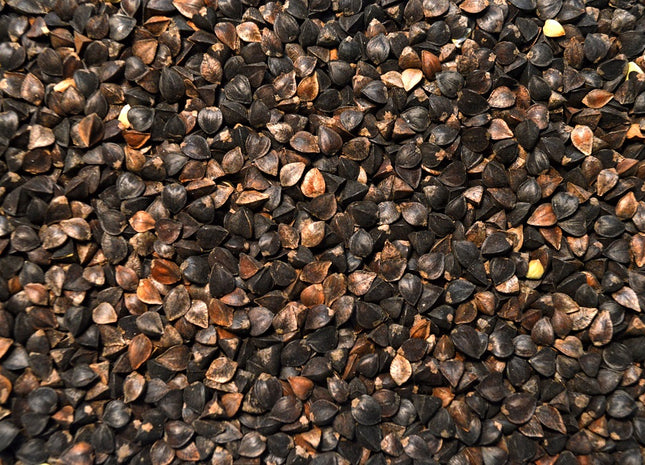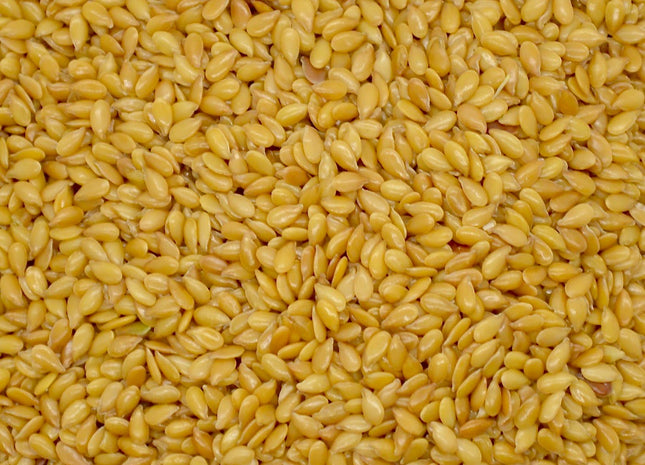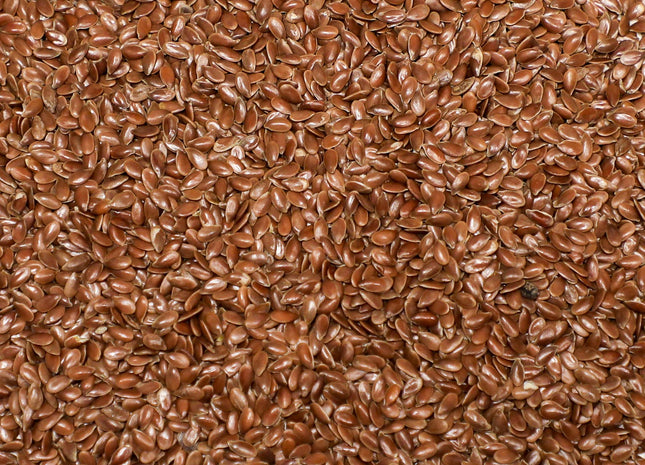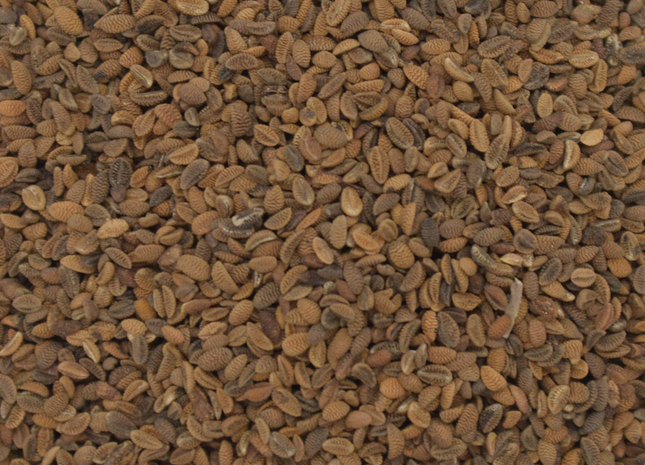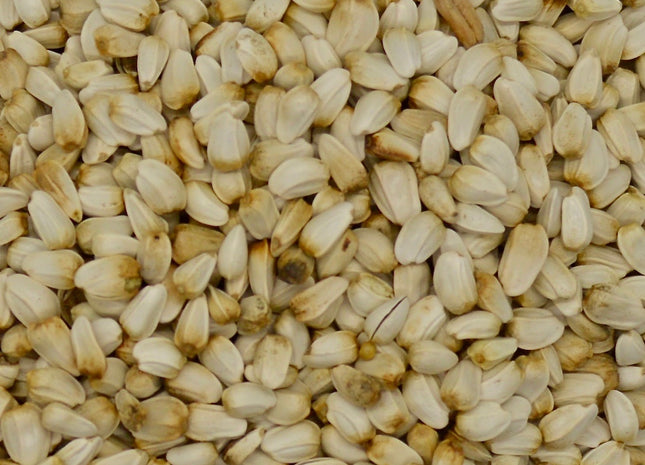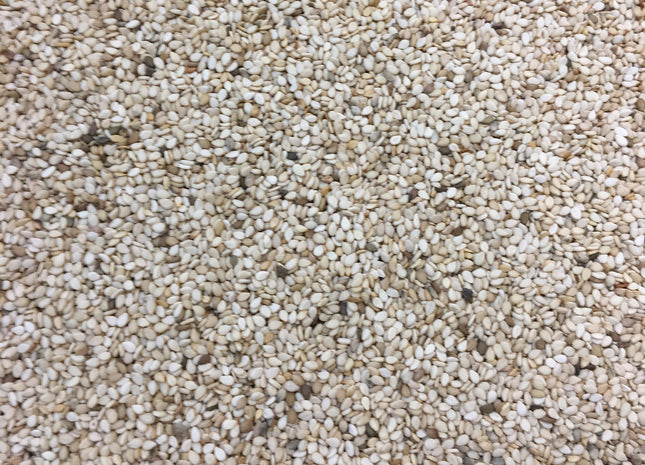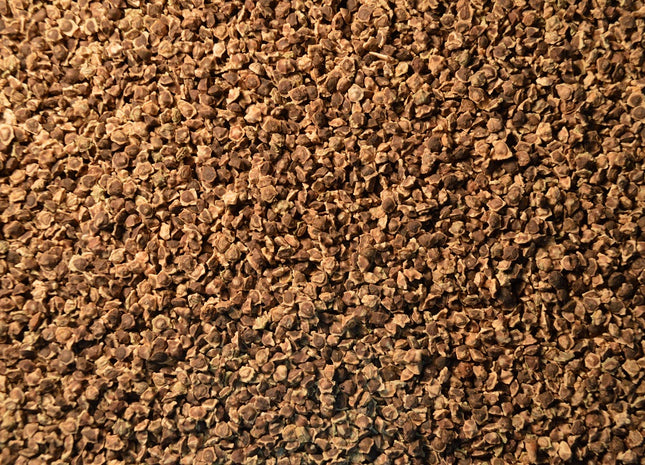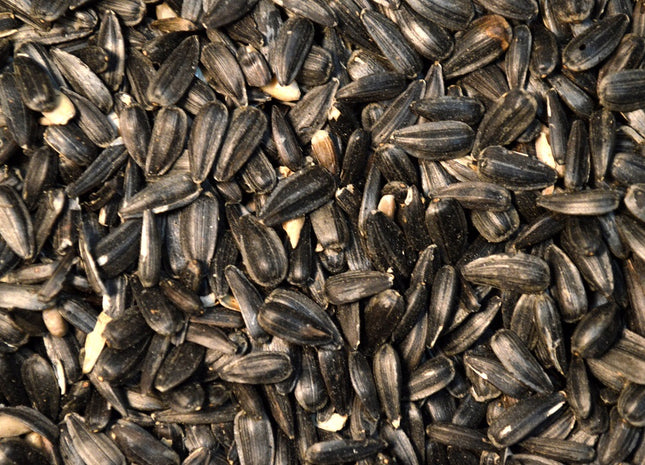Products

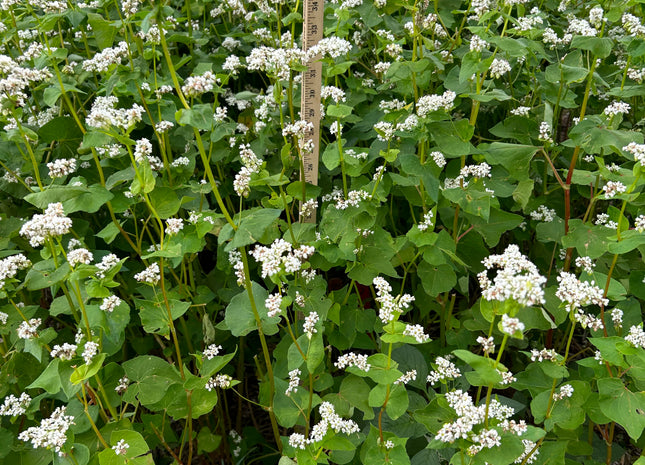
Buckwheat (Mancan)
Buckwheat is a fast establishing broadleaf that works great as a warm season cover crop. Buckwheat is also known for being a phosphorus scavenger. This means it can take up phosphorus more efficiently than other plants. Being a short season plant with 45-60 day maturity, it can produce viable seed throughout the growing season. In a situation where a buckwheat plant is grazed, it can drop a seed down to take that previous plant's spot to help prevent weeds. Additionally, buckwheat is fast to flower, making it a great species for pollinators.
from $1.05 per lb

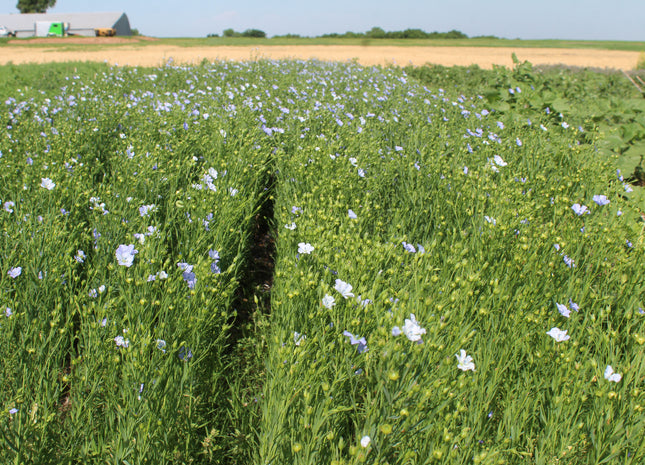
Flax (Golden)
Flax can be utilized in many small grain and corn rotations as a potential cover crop or fiber/oil crop. Compared to other common crops, overall nutrient demand is lower and very little nitrogen is needed. Vegetative growth normally requires 50 days before flowering occurs but after this flowering can last 2-4 weeks. Flax can be utilized as a green manure if terminated early enough but take caution if attempting to cut too late as lignin/cellulose content increase with maturity and would hamper decomposition. Nearly 95% of the water flax extracts from the soil is in the top 2-3 feet because of its shallow root structure. Water use is considered moderate with respect to other field crops, but flax uses about 3-4 inches less than soybeans. This is primarily due to the fact that the leaves of flax are generally numerous but leaf area is limited and thus ET is lower. As mentioned before, this species is an excellent companion crop next to other species in an early season mixture. Flax is generally a self-pollinated crop but pollinating insects are attracted to the various blue/purple colors of the flowers. Because flax is a broadleaf species, most diseases associated with it will not transfer over and cause infection to corn, soybeans, or wheat with the exception of powdery mildew and rhizoctonia after legumes.
from $1.73 per lb
- Out of Stock


Organic Brown Flax
Note: This product is certified organic. Flax can be utilized in many small grain and corn rotations as a potential cover crop or fiber/oil crop. Compared to other common crops, overall nutrient demand is lower and very little nitrogen is needed. Vegetative growth normally requires 50 days before flowering occurs but after this flowering can last 2-4 weeks. Flax can be utilized as a green manure if terminated early enough but take caution if attempting to cut too late as lignin/cellulose content increase with maturity and would hamper decomposition. Nearly 95% of the water flax extracts from the soil is in the top 2-3 feet because of its shallow root structure. Water use is considered moderate with respect to other field crops, but flax uses about 3-4 inches less than soybeans. This is primarily due to the fact that the leaves of flax are generally numerous but leaf area is limited and thus ET is lower. As mentioned before, this species is an excellent companion crop next to other species in an early season mixture. Flax is generally a self-pollinated crop but pollinating insects are attracted to the various blue/purple colors of the flowers. Because flax is a broadleaf species, most diseases associated with it will not transfer over and cause infection to corn, soybeans, or wheat with the exception of powdery mildew and rhizoctonia after legumes.
from $1.92 per lb


Organic Mancan Buckwheat
Note: This product is certified organic. Buckwheat is a fast establishing broadleaf that works great as a warm season cover crop. Buckwheat is also known for being a phosphorus scavenger. This means it can take up phosphorus more efficiently than other plants. Being a short season plant with 45-60 day maturity, it can produce viable seed throughout the growing season. In a situation where a buckwheat plant is grazed, it can drop a seed down to take that previous plant's spot to help prevent weeds. Additionally, buckwheat is fast to flower, making it a great species for pollinators.
from $1.20 per lb

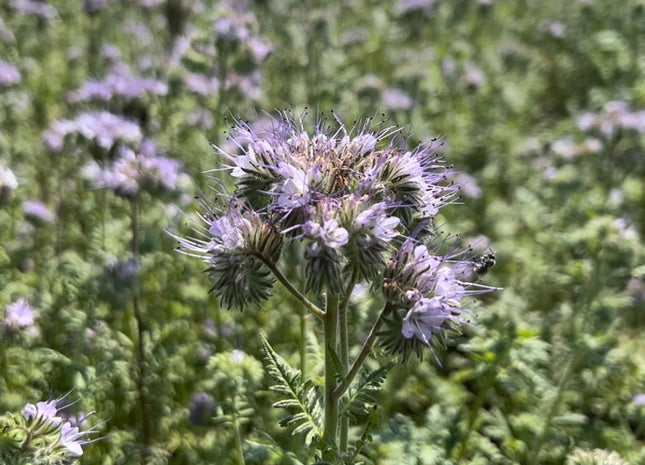
Phacelia
Phacelia enhances soil N uptake, boosts soil organic matter with C, and suits low to medium N soils for feed/hay. While forage yield is modest, it's palatable to livestock even at maturity. Best planting times are early spring or late summer (like alfalfa), but it blooms in spring planting and aids potassium availability.
from $4.35 per lb

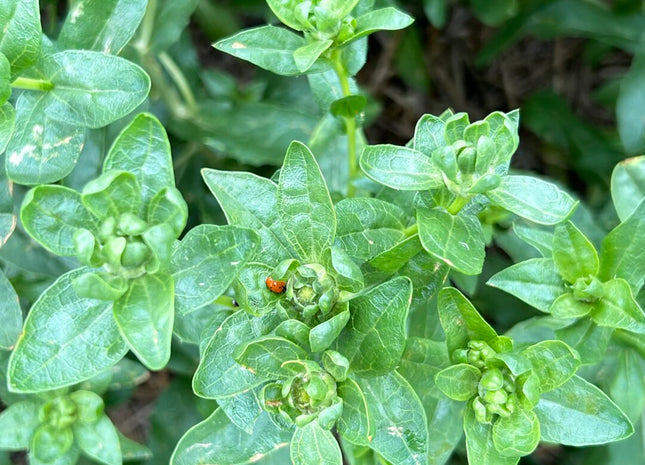
Safflower (Baldy)
Safflower is a drought tolerant, annual, warm season broadleaf that can be seeded in cool soils. Safflower is exceptional at breaking hard pans, encouraging water and air movement into the soil profile, as well as scavenging nutrients from depths unavailable to most agronomic crops. It is capable of doing this due to its impressive taproot which has been observed to grow 8-10 feet in ideal conditions. Safflower provides excellent forage for grazing but most varieties become prickly with maturity, rendering the plants unpalatable for livestock. Baldy safflower is one of the world's first spineless safflower varieties and has been developed specifically for grazing and cover crops. Baldy can be handled with bare hands even at maturity and is palatable for livestock grazing. Green Cover Seed owns the exclusive marketing rights for Baldy spineless safflower.
from $0.85 per lb

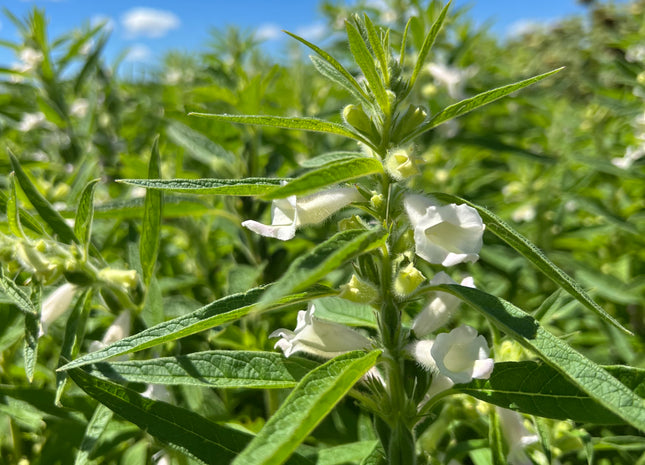
Sesame
Sesame is a warm season broadleaf that is normally grown for the oil content of the seed. It is one of the oldest cultivated plants and has been grown by people for over 4,000 years. Sesame loves hot weather and can grow with very limited water as well as being fairly tolerant of low pH soils. Sesame can grow 5-6 tall and will put on bell-shaped, white and purple flowers late in the season which makes it a great addition to a full season pollinator mix. Sesame has little to no forage value as livestock will not graze it, but it can still be a good addition to a grazing mix so there is some taller standing structure after the cattle have grazed the paddock.
from $2.15 per lb

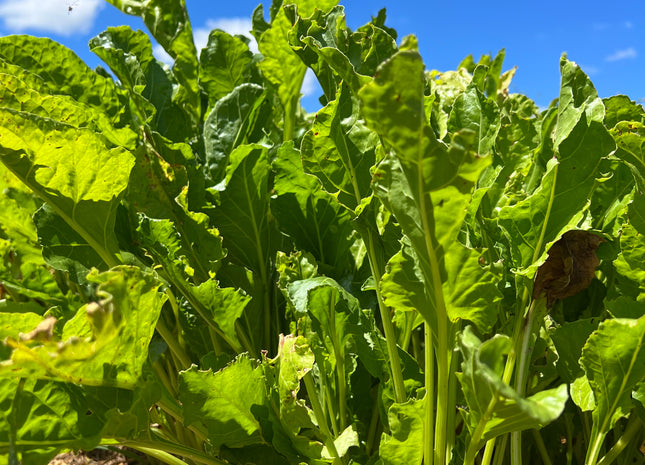
Sugar Beets Non-GMO
Sugar beets, a versatile broadleaf cover crop, bring a formidable combination of deep-rooted prowess and frost resistance to your agricultural arsenal. Their robust taproots can penetrate stubborn hardpans, with the majority of root growth hidden beneath the surface. These beets are not only sweet in content but also a preferred choice for both wildlife and cattle grazing. When grazed early, they display remarkable regrowth potential.
from $4.05 per lb

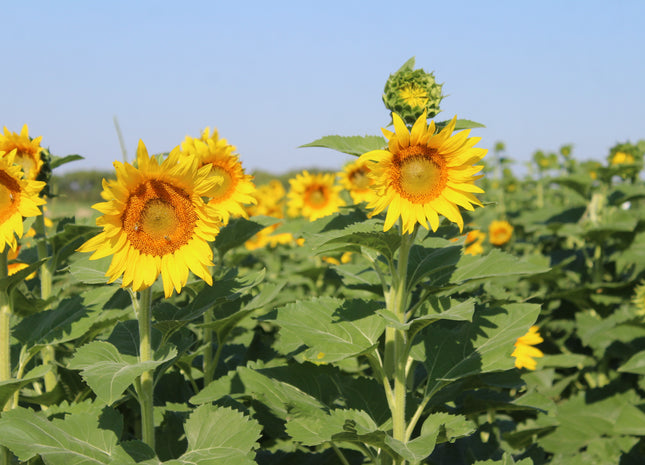
Sunflower (Black Oil)
Sunflower is renowned for its extensive and prolific root system and its ability to soak up residual nutrients out of reach for other commonly used covers or crops. This species can also take advantage of short growing seasons in case of damaging hail or poor emergence to cash crops. If planning to harvest for oil or seed or simply to attract birds, sunflowers have very similar planting and harvesting methods to that of corn. Because insects are attracted to the bright colors of sunflower heads, pollinators and beneficials such as bees, damsel bugs, lacewings, hoverflies, minute pirate bugs, and non-stinging parasitoid wasps are often found in fields of sunflower and in following crops. Sunflowers also work very well in cover crop cocktails/mixtures. With rapid early season establishment, additional covers under the canopy that normally don’t grow under cool conditions can begin to take advantage of warmer and favorable weather when sunflowers are growing slower. With upright growth and anchored plants in the soil, surrounding vining/climbing cover crop plants can support their own growth by working their way up to reach sunlight thereby providing the structure they need to grow. Because sunflowers can add significant biomass production in just a short growing season, they can also serve as additional forage or silage for livestock feed.
from $0.90 per lb

